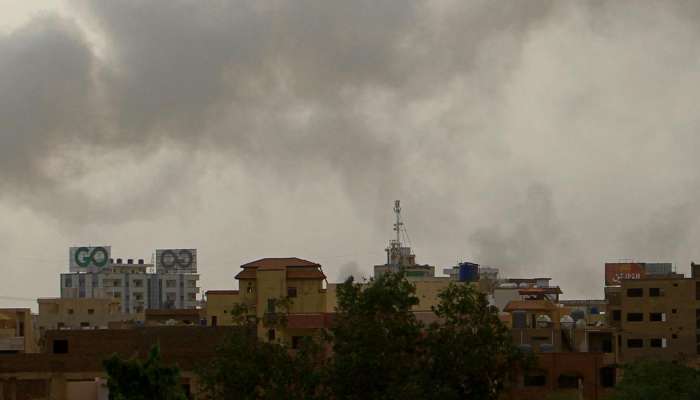
Khartoum: Sudan's military and the rival paramilitary Rapid Support Forces (RSF) have agreed to extend a flimsy 7-day cease-fire agreement for five extra days, as mediators Saudi Arabia and the US maintain hope it could lead to a longer-term truce.
In a joint statement, Saudi Arabia and the US acknowledged the many breaches to the weeklong cease-fire committed by both parties. However, they stressed that the truce enabled the delivery of humanitarian assistance despite being "imperfectly observed."
"The extension will provide time for further humanitarian assistance, restoration of essential services, and discussion of a potential longer-term extension," the two countries said.
A day earlier, mediators from the two countries accused both the army, under the leadership of General Abdel Fattah Burhan and Mohamed Hamdan Dagalo's RSF of "posturing for further escalation."
Sources told the Reuters news agency amendments to the new deal were underway to produce a more effective truce.
What is happening on the ground?
Amid the truce talks and cease-fire announcements, the two warring parties are still engaged in fighting.
Residents of the capital Khartoum told the French AFP news agency street battles were rife on the streets on Monday, and that they could hear gunfire, as well as artillery fire in the south of the city.
"Since yesterday evening there has been bombardment with all types of weapons between the army and the Rapid Support," Hassan Othman, a 55-year-old resident of Omdurman, told Reuters by phone. "We're in a state of great fear. Where's the truce?"
Residents also told Reuters they could hear airstrikes in Omdurman, part of Greater Khartoum, on Monday. The military has been relying on airstrikes to target RSF forces taking position in the capital's neighborhoods.
Meanwhile, also on Monday, the United Nations' World Food Program announced starting to reach thousands of Khartoum's trapped residents in a "major breakthrough."
Many residents of the capital have found themselves trapped in their homes amid the fighting, unable to stock up on essentials due to the dangerous situation on the streets.
The fighting, ongoing since mid-April, has killed hundreds and displaced over a million, hundreds of thousands of whom crossed into neighboring countries to seek refuge.